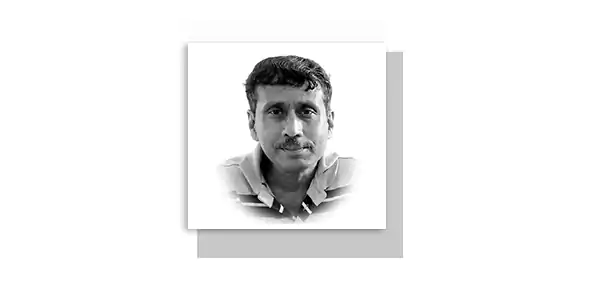MUSLIMS throughout the world are celebrating the holy month of Ramadan. Ramadan is a month in which they get closer to God to burn away their sins and to enhance their spirituality. This month, Muslims focus on offering their five daily prayers on time and reading the Holy Qur’an, understanding its meaning, and doing good deeds.
The Qur’an teaches us that fasting is the most effective way to have self-discipline and devotion because this is solely for Allah. And this concept is not new to Islam. Almost every religion in the world has a form of fasting in some way or the other. But that does not mean that fasting has been prescribed for Muslims in the same form in which it is prescribed for the people of other faiths. Islam has greatly spiritualised this institution by attaching to it many beneficial regulations and restrictions.
God says in the Holy Qur’an: “O believers! Fasting is prescribed for you, as it was prescribed for those before you, so that you may become righteous – so that you may guard yourself against evil.” (Chapter 2, verse 183). Ramadan is when Muslims fast from dawn till dusk as a mark of piety to the Almighty and His teachings. Not even a glass of water is taken during fasting in this entire month, however, hot the climate may be or, however, thirsty one may feel.
The Last Prophet (PBUH) said: “The five (daily) prayers, and from one Juma prayer to the (next) Juma prayer, and from Ramadan to Ramadan are expiations for the (sin) committed in between (their intervals); provided the major sins are not committed.”
Fasting is to be purely out of love for the Creator and to thank Him for what He has blessed us with in our daily life. Here is what the last Prophet also said about fasting: “Fasting is a shield; it will protect you from the fires of hell and prevent you from committing sins. When the month of Ramadan starts, the gates of heaven are opened and the gates of hell are closed and the devils are chained.”
There are many reasons to fast, including the Muslim tradition. Other reasons include self-control. If a person is able to abstain from food and water for that much amount of time, he/she learns to control his/her desires and temptations and thus has greater self-control.
Ramadan is celebrated after the crescent moon is sighted. Muslims observe a fast starting with the sighting of the new moon, and end it after seeing the new moon, the following month. They offer alms to the poor and recite the Holy Qur’an during this entire month. With the new moon being sighted, Ramadan comes to an end with Eid-ul-Fitr being celebrated.
Eid-ul-Fitr is celebrated with much fervour by Muslims from all strata of life. It is similar to Christmas and Deeavali which the Christians and Hindus celebrate. But unlike Christmas and Deeavali, Eid is celebrated not for any significant dates or birth of any prophet, but to mark the end of the holy month long fasting.
On the day of Eid-ul-Fitr, morning prayers are followed by a sermon and a congregational prayer at the mosque. Muslims offer ‘Do Rakat Namaz’ on this day. Then, dressed in new outfits, they proceed to greet their family members, friends and relatives. This is done through friendly embraces and handshakes, as a gesture of unity. The ritual of distributing alms on this day is observed throughout the ongoing celebrations.
Great importance is attached to Eid-ul-Fitr in India, as it is an important public holiday. All schools, colleges and public institutions remain closed on this day to mark its significance. Also, there exists a considerably large population of the Muslim minority, which adds to the cultural demographics of India. With time, these traditions have strengthened their interaction and intermingling with the Indian culture. Eid-ul-Fitr has thus seeped into India’s cultural milieu and is looked forward among people of all communities.
All Muslim countries throughout the world celebrate Eid as a sign of Muslim unity and values. Starting a day with special prayers and a sweet dish called ‘Sheer khurma’, men, women and children wear new clothes, while women along with new clothes, also wear bangles and apply mehandi. The children receive blessings and gifts from elders called ‘Eidi’.
Being happy and thankful to God, we must not forget the people who will not be celebrating Eid because of their responsible jobs such as policemen, housemaids, doctors, nurses and gate keepers. We should share our happiness with them too, as Eid is all about sharing joy and happiness.
—The writer is contributing columnist, based in Mumbai, India
Email: jubeldcruz@yahoo.com










